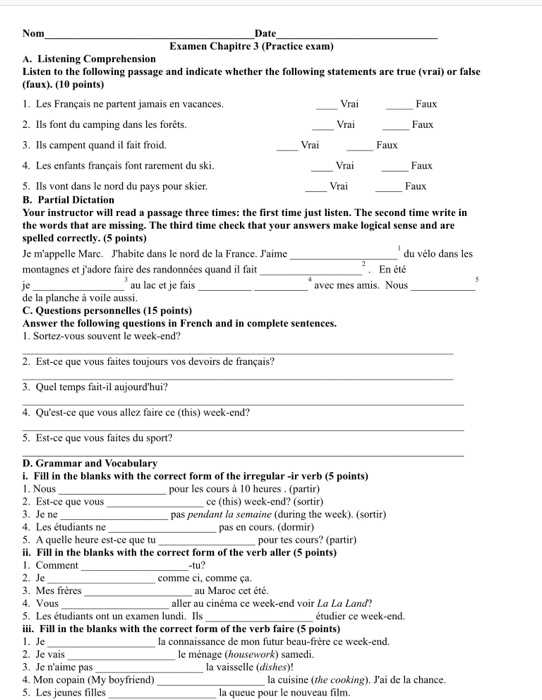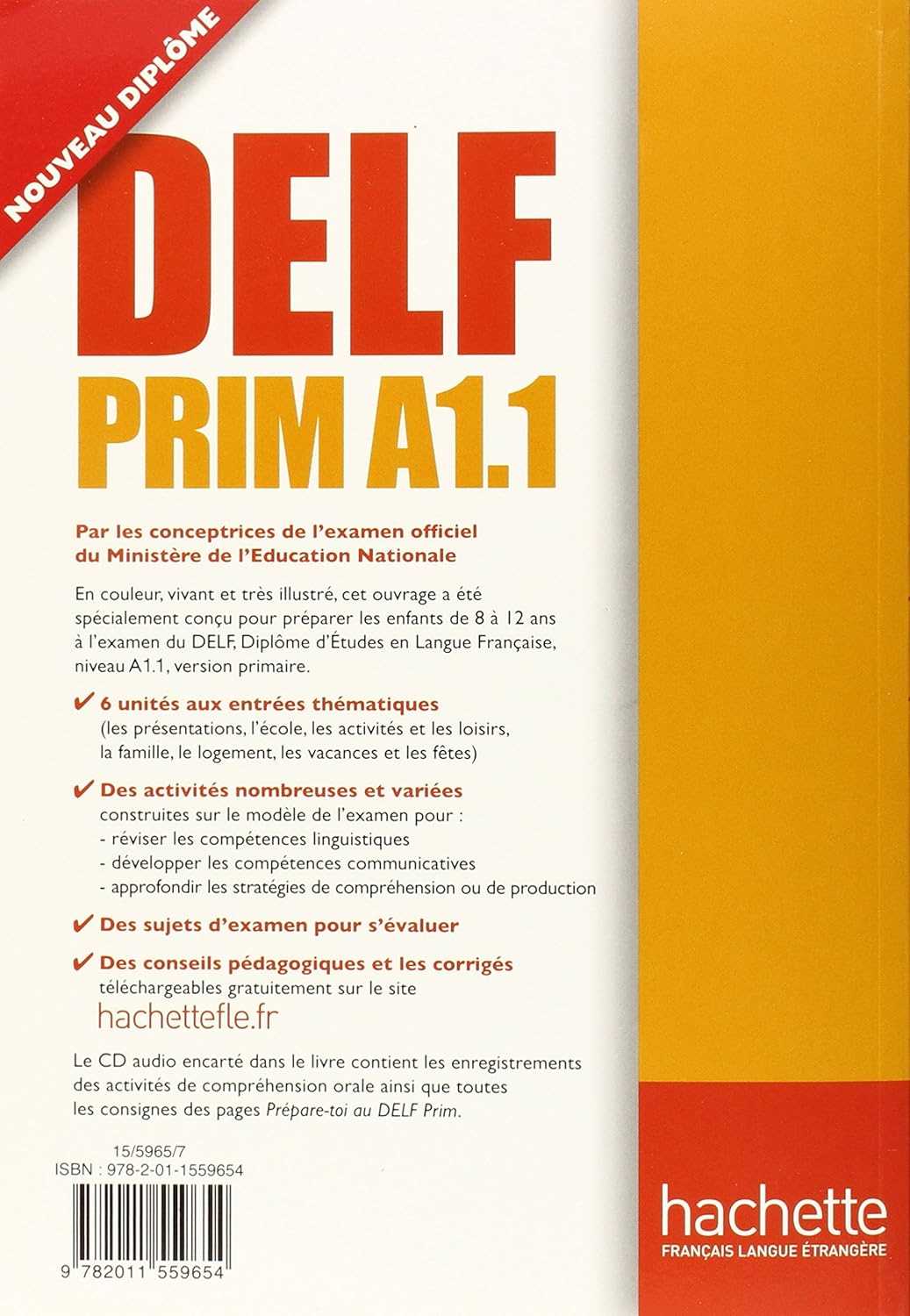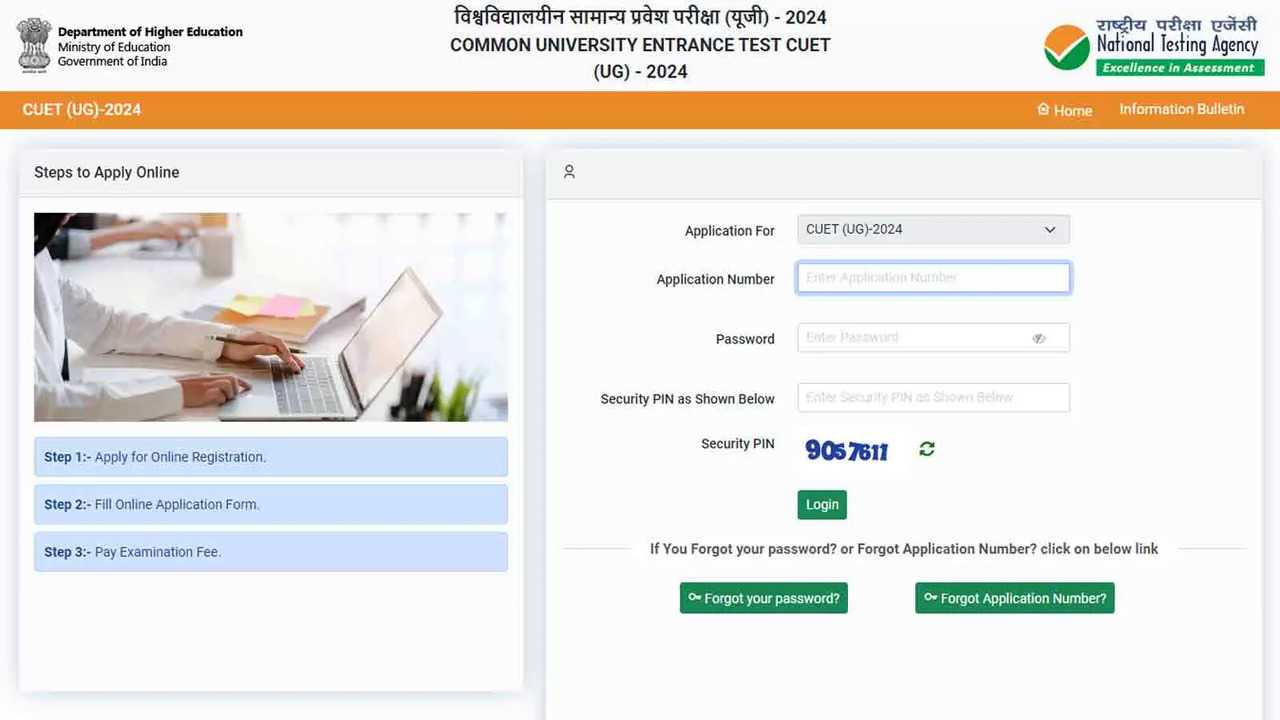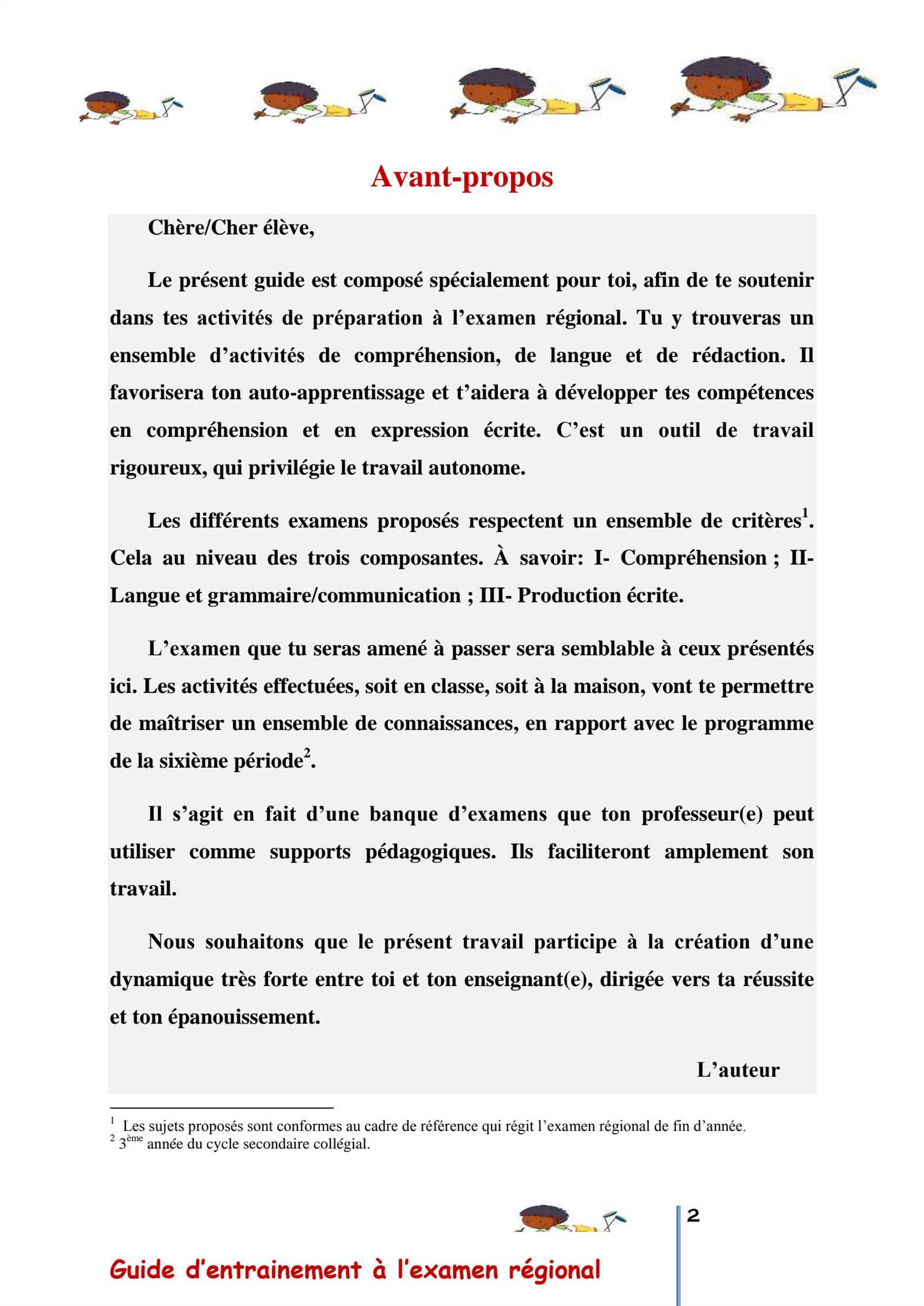
Facing an important test can be a stressful experience, but with the right preparation, you can turn anxiety into confidence. The key lies in adopting practical methods and developing a structured approach that will allow you to approach any exam with ease.
Success doesn’t come from cramming at the last minute; rather, it is the result of consistent effort, smart planning, and understanding the material. By focusing on specific techniques and strategies, you can optimize your study time and improve your overall performance.
Effective preparation involves a combination of mastering the content, practicing problem-solving skills, and managing your time efficiently. By applying these principles, you’ll be ready to tackle any challenge that comes your way during the test.
Prepare for Your Exam with Confidence
Entering a testing environment with a sense of calm and certainty is essential for performing at your best. The foundation of this confidence lies in how thoroughly you prepare and how well you manage your mindset leading up to the exam. A confident approach allows you to focus better, think more clearly, and make sound decisions during the test.
Building Confidence Through Consistent Practice
One of the most effective ways to build confidence is through regular practice. By familiarizing yourself with the exam format and types of questions, you can reduce uncertainty and improve your response time. The more you practice, the more confident you’ll feel.
- Complete mock exams to simulate the test environment.
- Review and understand common question formats and topics.
- Track your progress and focus on areas that need improvement.
Managing Stress and Anxiety
Confidence is not just about knowledge but also about mental resilience. Stress and anxiety are natural, but learning how to manage them can significantly enhance your performance. Developing strategies to stay calm can make a huge difference in your results.
- Practice deep breathing exercises to calm your nerves.
- Visualize yourself succeeding in the exam.
- Take short breaks during study sessions to avoid burnout.
By incorporating these strategies into your preparation, you’ll cultivate a mindset that is both focused and confident, setting yourself up for success on exam day.
Understand the Exam Format and Structure
Familiarizing yourself with the structure and format of a test is a critical step in your preparation. Knowing what to expect allows you to approach the assessment with clarity, reducing any anxiety or confusion. This understanding helps you to allocate time efficiently, prioritize key sections, and use your strengths to your advantage.
Types of Questions and Their Layout
Each exam has its own specific format, which could include multiple-choice questions, essay-style responses, or problem-solving tasks. Understanding the question types helps you tailor your preparation effectively.
- Multiple-choice: These questions test your knowledge of facts and concepts. Practice eliminating incorrect options to improve your chances of choosing the correct answer.
- Short answer: These questions require concise responses. Focus on key terms and concepts while preparing.
- Essay: These questions assess your ability to express ideas clearly and logically. Prepare by practicing structured responses with an introduction, body, and conclusion.
- Practical tasks: Some exams may include hands-on or problem-solving sections. Practice similar tasks beforehand to build confidence.
Time Allocation and Strategy
Once you understand the types of questions, it’s important to strategize how you’ll allocate time during the exam. Dividing your time based on the difficulty and length of each section ensures you can complete all parts efficiently.
- Read instructions carefully: Before starting, take a moment to understand the instructions for each section.
- Prioritize questions: Tackle questions that you find easier first to gain momentum.
- Keep track of time: Regularly check the clock to avoid spending too much time on a single section.
Mastering the format and structure of your exam is key to effective preparation. By recognizing the types of questions and managing your time well, you set yourself up for success when it’s time to sit for the test.
Key Strategies to Improve Your Memory
Enhancing memory is essential for academic success. A strong memory allows you to retain and recall information more effectively, helping you to perform well during assessments. Using proven techniques to boost your ability to remember key concepts will improve both your efficiency and your confidence.
Visualization Techniques
One of the most effective ways to improve memory is through visualization. By associating the information you are studying with vivid mental images, you can make complex ideas easier to remember. This method engages both your visual and cognitive processes, which strengthens retention.
- Picture scenes or diagrams that represent the information.
- Create mental “mind maps” linking related concepts.
- Use color coding to emphasize key points in your notes.
Spaced Repetition
Spaced repetition is a powerful memory technique that involves reviewing material at increasing intervals over time. This strategy helps reinforce information and improves long-term retention. Instead of cramming, revisiting the material periodically allows your brain to consolidate memories.
- Review notes a few hours after studying, then again the next day.
- Gradually increase the time between review sessions as you master the material.
- Use apps or flashcards that are designed for spaced repetition.
Active Recall and Self-Testing
Active recall involves actively engaging with the material, rather than passively reading or highlighting. Testing yourself on the information you’ve learned strengthens neural connections, making it easier to retrieve that information later. This method helps reinforce memory and identify areas that need further review.
- Quiz yourself regularly on key topics.
- Ask a friend or study partner to test your knowledge.
- Create practice tests or flashcards for self-assessment.
By applying these memory-boosting techniques consistently, you can significantly improve your ability to retain and recall information, leading to better results on any test.
Effective Time Management During Studying
Efficient use of time is a fundamental factor in successful learning. By organizing your study schedule and avoiding procrastination, you can maximize productivity and ensure that you cover all necessary material without feeling overwhelmed. Implementing good time management practices helps you stay focused and work smarter, not harder.
Creating a Structured Study Plan
To make the most of your study sessions, it’s essential to create a clear and realistic plan. Break your study material into manageable chunks and assign specific time slots to each topic. This approach ensures that you stay on track and don’t waste valuable time deciding what to study next.
- Set specific, measurable goals for each session.
- Prioritize tasks based on their difficulty or importance.
- Be flexible, but stay committed to your schedule.
Avoiding Distractions and Staying Focused
Distractions can significantly reduce the efficiency of your study time. Identify potential distractions early on and take steps to minimize or eliminate them. Creating a distraction-free study environment helps maintain concentration and improves the quality of your learning.
- Turn off notifications on your phone or computer.
- Choose a quiet, comfortable study space.
- Use techniques like the Pomodoro method to maintain focus.
By applying these time management strategies, you can ensure that your study sessions are both productive and effective, helping you achieve your goals without unnecessary stress.
How to Tackle Multiple Choice Questions
Multiple choice questions (MCQs) are a common format in many assessments. While they may seem straightforward at first glance, a strategic approach is essential to answer them correctly and efficiently. Understanding how to navigate these questions will allow you to maximize your score while minimizing errors.
Read the Question Carefully
The first step in answering a multiple choice question is to fully understand what is being asked. It’s crucial not to rush through the question and to pay attention to key details, such as specific terms or qualifiers like “always” or “never” that can affect the correct answer.
- Look for keywords or phrases that define the question’s focus.
- Identify whether the question asks for a specific detail or a general concept.
- Be mindful of negative words such as “not” or “except.” They can change the meaning of the question.
Eliminate Incorrect Options

Once you’ve understood the question, begin by eliminating obviously incorrect options. This increases the likelihood of choosing the right answer, especially if you have to make an educated guess.
- Cross out options that you know are clearly wrong based on your knowledge.
- Look for similar choices and determine if one is more specific or accurate.
- Use logic to rule out answers that seem too extreme or general.
By reading questions carefully and systematically eliminating incorrect answers, you can improve your chances of selecting the correct option. This method not only saves time but also helps you focus on the most relevant information.
Best Practices for Written Exam Responses
Providing clear and well-structured responses during a written assessment is key to conveying your knowledge effectively. It’s not just about having the right information, but also about presenting it in a way that is organized and easy to follow. Following best practices can help ensure that your answers are comprehensive, concise, and impactful.
Organize Your Thoughts Before Writing
Before diving into writing your answer, take a moment to plan your response. A well-organized answer not only demonstrates your understanding but also ensures that you cover all relevant points. Mapping out your ideas can help you stay focused and avoid unnecessary tangents.
- Read the question carefully and underline key terms.
- Jot down a brief outline of the points you want to cover.
- Ensure that each point logically flows to the next for clarity.
Use Clear and Concise Language
Being clear and concise is essential when writing exam responses. Avoid overly complex language or long-winded sentences that can confuse the reader. Stick to the point and express your ideas in simple, direct terms.
| Do | Don’t |
|---|---|
| Use short, direct sentences. | Write overly complicated or convoluted sentences. |
| Stay focused on the question. | Introduce irrelevant information. |
| Use bullet points for clarity where applicable. | Use long paragraphs without breaks. |
By applying these practices, you can enhance the quality of your written responses, ensuring that your answers are both clear and effective. Structured, well-written answers allow you to demonstrate your full potential, increasing your chances of achieving a top score.
Staying Calm Under Pressure During Tests
Remaining calm during a test can significantly improve your performance. When faced with pressure, it’s easy to become anxious or overwhelmed, which can cloud your thinking and affect your ability to focus. By mastering techniques to manage stress, you can maintain clarity and stay in control, leading to better results.
Breathing Techniques for Relaxation

One of the simplest and most effective ways to reduce anxiety is through controlled breathing. Deep breathing helps slow your heart rate and calms your mind, allowing you to refocus and think more clearly during the test.
- Inhale slowly: Breathe in deeply through your nose for 4 seconds.
- Hold your breath: Pause for a count of 4 seconds.
- Exhale slowly: Breathe out through your mouth for 6 seconds.
Repeat this cycle several times to calm your nerves and regain composure when you feel stressed.
Time Management to Reduce Stress
Effective time management is crucial to reducing pressure during a test. By planning how you’ll approach each section and pacing yourself, you can prevent rushing through questions and avoid feeling overwhelmed by the clock.
- Prioritize questions: Start with questions you feel most confident about to build momentum.
- Break the test into sections: Tackle one part at a time to avoid feeling that you need to do everything at once.
- Keep an eye on the clock: Regularly check the time to ensure you have enough left for all sections.
Implementing these strategies helps you stay focused and calm, even in the face of challenging questions or time constraints. With practice, you can train yourself to remain composed, which will ultimately lead to better performance and a more confident approach to testing situations.
Utilizing Study Resources for Better Results
Maximizing your study potential involves more than just self-study; it’s about leveraging a wide range of resources to enhance your understanding. By utilizing available tools, you can gain deeper insights, reinforce your learning, and prepare more effectively. Whether it’s textbooks, online materials, or study groups, tapping into diverse resources can elevate your preparation and boost your performance.
Make Use of Textbooks and Lecture Notes
Textbooks and class notes are the foundation of your study materials. They provide detailed explanations and structured content that aligns with the syllabus, making them indispensable during revision.
- Review key concepts and definitions from your notes.
- Focus on chapters highlighted during class lectures.
- Take notes in your own words to reinforce understanding.
Leverage Online Learning Platforms
Online platforms offer interactive learning opportunities and a wide range of supplementary materials. These resources can provide alternative explanations and additional exercises that can help clarify complex topics.
- Utilize video tutorials to break down difficult concepts.
- Participate in practice quizzes to test your knowledge.
- Join online forums or discussion groups for peer support and advice.
Study with Others for Collaborative Learning
Collaborative learning can be a powerful tool for reinforcing your knowledge. Working with classmates allows you to exchange ideas, clarify doubts, and approach problems from different angles.
- Form or join study groups to tackle challenging material together.
- Teach concepts to others, as this helps strengthen your own understanding.
- Set study goals and quiz each other on key topics.
By combining various resources such as textbooks, online tools, and group study, you can create a well-rounded and effective study routine that enhances your learning experience and helps you achieve your academic goals.
The Importance of Regular Practice Tests

Regular practice tests play a crucial role in reinforcing what you’ve learned and preparing for any upcoming assessment. By simulating the actual testing environment, practice exams help you become familiar with the format and structure of questions, reduce anxiety, and identify areas where further improvement is needed. Consistent practice enables you to build confidence and improve your problem-solving skills under time constraints.
Enhance Time Management Skills
One of the greatest benefits of practice tests is that they help you manage your time effectively during the actual test. By working through sample questions within a set time limit, you develop a better sense of pacing and can allocate your time more efficiently during the real exam.
- Work within the time limit to simulate exam conditions.
- Identify which sections take more time and adjust your strategy accordingly.
- Practice quickly moving from one question to the next without wasting time.
Track Progress and Identify Weak Areas
Taking practice tests regularly allows you to track your progress over time. It helps you assess how well you’re retaining information and pinpoint areas where you may need more focus. This feedback loop allows for targeted improvements and ensures you’re fully prepared when the exam day arrives.
- Review your performance after each test to see which topics need more attention.
- Focus on areas where you scored lower and practice those concepts more thoroughly.
- Set goals for improvement before each subsequent practice test.
Incorporating regular practice tests into your study routine is an excellent way to boost both your knowledge and confidence. It ensures you’re well-prepared, familiar with the format, and able to perform at your best when it counts the most.
Tips for Mastering Complex Topics

Mastering complex subjects requires patience, focused effort, and strategic study techniques. While these topics may initially seem overwhelming, breaking them down into smaller, more manageable parts can make learning much more effective. By applying the right approach and using various resources, you can gain a deeper understanding and achieve mastery in challenging areas.
Break Down Information into Digestible Chunks
When faced with complicated material, it’s helpful to divide it into smaller sections. This allows you to focus on one aspect at a time, reducing the cognitive load and making it easier to absorb the content. By approaching the material step by step, you build a stronger foundation before moving on to more advanced concepts.
- Identify key concepts and break them down into subtopics.
- Use bullet points or mind maps to organize information visually.
- Focus on understanding the basic principles before delving into more complex details.
Utilize Multiple Learning Resources
Relying on a single resource may limit your understanding. It’s important to consult various materials, such as textbooks, online articles, videos, and study guides. Different explanations and perspectives can help clarify difficult concepts and give you a broader understanding of the topic.
| Resource | Benefit |
|---|---|
| Textbooks | Provide in-depth coverage of core concepts. |
| Online Tutorials | Offer visual demonstrations and explanations. |
| Study Groups | Allow for discussion and collaborative problem-solving. |
| Practice Exercises | Help reinforce understanding through application. |
Teach What You Learn
Teaching others is an excellent way to reinforce your own knowledge. When you explain a concept in your own words, you deepen your understanding and uncover areas where you may need further clarification. Consider teaching a peer or even writing down explanations to solidify your grasp on the material.
- Try explaining complex topics to friends or family members.
- Create detailed summaries or flashcards to aid your own understanding.
- Engage in peer study sessions where you take turns teaching each other.
By following these strategies, you can gradually master even the most difficult topics. The key is to remain persistent, utilize various resources, and break down complex material into manageable chunks. With the right approach, no subject is too difficult to conquer.
How to Handle Exam Anxiety Effectively
Feeling anxious before or during an assessment is a common experience, but it doesn’t have to hinder your performance. Learning how to manage stress and stay calm can help you focus better, make clearer decisions, and perform at your best. With the right techniques, you can transform nervous energy into productive motivation.
Recognize the Symptoms of Anxiety

Understanding how anxiety manifests in your body is the first step towards managing it. Common signs of exam-related stress include racing thoughts, rapid heartbeat, sweating, or difficulty concentrating. Being aware of these symptoms can help you take action before they become overwhelming.
- Notice physical signs such as tense muscles or shallow breathing.
- Be mindful of negative self-talk or feelings of dread.
- Keep track of your stress levels to intervene early.
Practice Relaxation Techniques
Relaxation exercises can significantly reduce anxiety and help restore focus. Incorporating breathing exercises, progressive muscle relaxation, or meditation into your routine can calm your mind and body, preparing you for the task at hand.
- Deep Breathing: Inhale deeply for a count of four, hold for four, and exhale for four to regulate your breathing.
- Progressive Muscle Relaxation: Tense and release different muscle groups to release tension throughout your body.
- Mindfulness Meditation: Focus on the present moment, letting go of thoughts about the future or past.
Prepare Thoroughly and Manage Expectations
One of the main causes of exam anxiety is the fear of being unprepared. By starting your preparation well in advance, breaking down tasks into manageable parts, and setting realistic goals, you can reduce uncertainty and build confidence.
- Establish a study schedule with specific goals to avoid last-minute cramming.
- Take regular breaks to prevent burnout and maintain productivity.
- Set achievable expectations and remember that doing your best is enough.
Get Enough Rest and Stay Healthy
Physical well-being plays a crucial role in how you handle stress. Ensure you are getting enough sleep, eating nutritious meals, and staying hydrated. A healthy body supports a calm and focused mind, making it easier to manage anxiety during the assessment.
- Prioritize sleep, especially the night before the test.
- Eat balanced meals to fuel your brain and maintain energy levels.
- Engage in regular physical activity to relieve tension and improve mood.
By implementing these strategies, you can significantly reduce exam-related anxiety and increase your ability to perform under pressure. The key is to stay prepared, manage your stress effectively, and remember that you are capable of handling any challenge that comes your way.
Creating a Study Schedule That Works
Having a well-organized study schedule is essential for effective learning and reducing stress. A clear plan helps prioritize tasks, ensures consistency, and keeps you on track toward achieving your goals. By allocating enough time for each subject or topic and balancing study sessions with breaks, you can maximize productivity and retain more information.
Start by evaluating how much time you have before the assessment and how many topics you need to cover. Break down your study material into manageable chunks, and allocate specific time blocks for each task. Make sure to leave room for rest and relaxation to avoid burnout.
- Set Realistic Goals: Break your study material into smaller, achievable objectives.
- Balance Your Schedule: Allocate time for both study and relaxation to maintain focus and avoid fatigue.
- Adjust as Needed: Be flexible and adjust your schedule based on progress or changes in your workload.
Consistency is key when following a study schedule. Try to stick to your planned hours every day, and stay disciplined even when motivation is low. Remember, building a routine over time will make studying feel like a habit rather than a chore.
Lastly, regularly evaluate your progress. If certain areas need more attention, adjust your schedule accordingly to focus on weak points. By staying proactive and organized, you can approach your study plan with confidence and make the most of your preparation time.
Making the Most of Group Study Sessions
Group study sessions can be a highly effective way to enhance learning and gain new insights. By collaborating with peers, you can discuss complex topics, clarify doubts, and reinforce your understanding. However, to make the most of group study, it’s important to approach these sessions with a clear structure and set goals to ensure that everyone stays on track.
Start by selecting a small group of motivated individuals who are focused on achieving similar academic goals. This ensures that everyone is invested in the study process and can contribute meaningfully. Establish a clear agenda for each session, outlining specific topics to cover, and make sure to assign roles to keep things organized.
- Set Clear Objectives: Decide on the topics to be discussed and what each participant should prepare in advance.
- Stay Focused: Designate times for discussion, problem-solving, and review, while avoiding unnecessary distractions.
- Encourage Participation: Ensure that all group members actively contribute by asking questions and offering explanations.
Another key aspect of successful group study is balancing active engagement with individual work. While group discussions can be beneficial for reinforcing concepts, it’s also important to allow time for independent study to solidify understanding. Each member should leave the session feeling like they have gained new knowledge and strategies to tackle challenges on their own.
Finally, make use of different learning styles within the group. Some may benefit from visual aids, while others may prefer verbal explanations. Mixing different approaches will help address various learning preferences and ensure that the group dynamic is enriching for everyone.
Boosting Focus with Healthy Habits
Maintaining mental clarity and focus during study sessions is essential for success. Healthy habits not only improve concentration but also enhance overall well-being, making it easier to absorb and retain information. By adopting a balanced lifestyle that includes proper nutrition, exercise, and rest, you can significantly boost your ability to stay focused and productive.
Nutrition and Hydration
What you eat and drink has a direct impact on your cognitive abilities. A well-balanced diet rich in essential vitamins and minerals supports brain function and improves focus. Avoid sugary snacks and opt for nutrient-dense foods that provide sustained energy. Staying hydrated is equally important, as dehydration can lead to fatigue and reduced concentration.
- Eat Whole Foods: Choose fruits, vegetables, whole grains, and lean proteins to fuel your brain.
- Limit Processed Sugars: High sugar intake can cause energy crashes, affecting your focus.
- Drink Plenty of Water: Staying hydrated helps maintain mental clarity and energy levels.
Exercise and Movement
Regular physical activity is another key component in boosting mental focus. Exercise increases blood flow to the brain, enhancing cognitive performance. Even short breaks for movement, such as stretching or taking a walk, can help clear your mind and reduce stress.
- Exercise Regularly: Aim for at least 30 minutes of moderate exercise a few times a week.
- Take Movement Breaks: Short physical activities during study sessions can refresh your mind.
- Practice Deep Breathing: Deep breathing exercises help reduce anxiety and improve concentration.
Incorporating these healthy habits into your daily routine can improve both focus and productivity. With proper nutrition, exercise, and mindfulness, you’ll be better equipped to stay on task and achieve your learning goals with greater ease and efficiency.
Reviewing Key Concepts the Night Before
As the test day approaches, it’s important to maximize your preparation without overloading your mind. Reviewing key concepts the night before can help reinforce essential information and boost your confidence. This final review session should focus on important topics rather than attempting to learn new material, which can lead to confusion or unnecessary stress.
During this time, focus on summarizing main ideas and revisiting difficult concepts. Prioritize areas that you feel less confident about, while also refreshing your memory on key points. This review will help solidify your understanding and allow you to enter the exam with a clear and focused mind.
| Effective Review Strategies | What to Avoid |
|---|---|
| Focus on core concepts and high-priority topics. | Attempting to learn entirely new material. |
| Review notes, summaries, and study guides. | Overloading with too much information. |
| Use flashcards or practice questions to test knowledge. | Staying up late; aim for a good night’s sleep. |
| Stay calm and confident, trusting your preparation. | Letting anxiety take over. |
By reviewing key concepts strategically, you will strengthen your recall and reduce stress, setting yourself up for success when it’s time to perform. Remember, this is not the time to cram but rather to reaffirm the knowledge you’ve worked hard to acquire throughout your study sessions.
What to Do After the Exam for Success
Completing an exam is only one step in the journey toward academic success. After the test, it’s essential to adopt a positive mindset and focus on actions that will help you reflect, recover, and prepare for the next challenge. How you handle the period following an exam can significantly impact your future performance and mental well-being.
First and foremost, avoid dwelling on the questions you weren’t sure about or stressing over what could have gone better. Instead, focus on moving forward and using this time productively. Whether it’s recharging your energy, analyzing your strengths and weaknesses, or preparing for future assessments, the post-exam period is an opportunity for growth.
Steps to Take After the Test
- Relax and unwind to reduce stress.
- Review your performance when the results are available.
- Identify areas of improvement for the future.
- Set goals for the next phase of your studies.
- Maintain healthy habits to support ongoing learning.
What to Avoid After an Exam
- Overanalyzing your answers or mistakes.
- Comparing yourself to others, as it can increase anxiety.
- Engaging in activities that are overly stressful.
- Neglecting your physical or mental well-being.
Taking the right steps after completing your exam ensures that you stay on track for continuous improvement. By focusing on reflection, rest, and setting clear goals, you will be better prepared for future challenges and set yourself up for success in your academic journey.